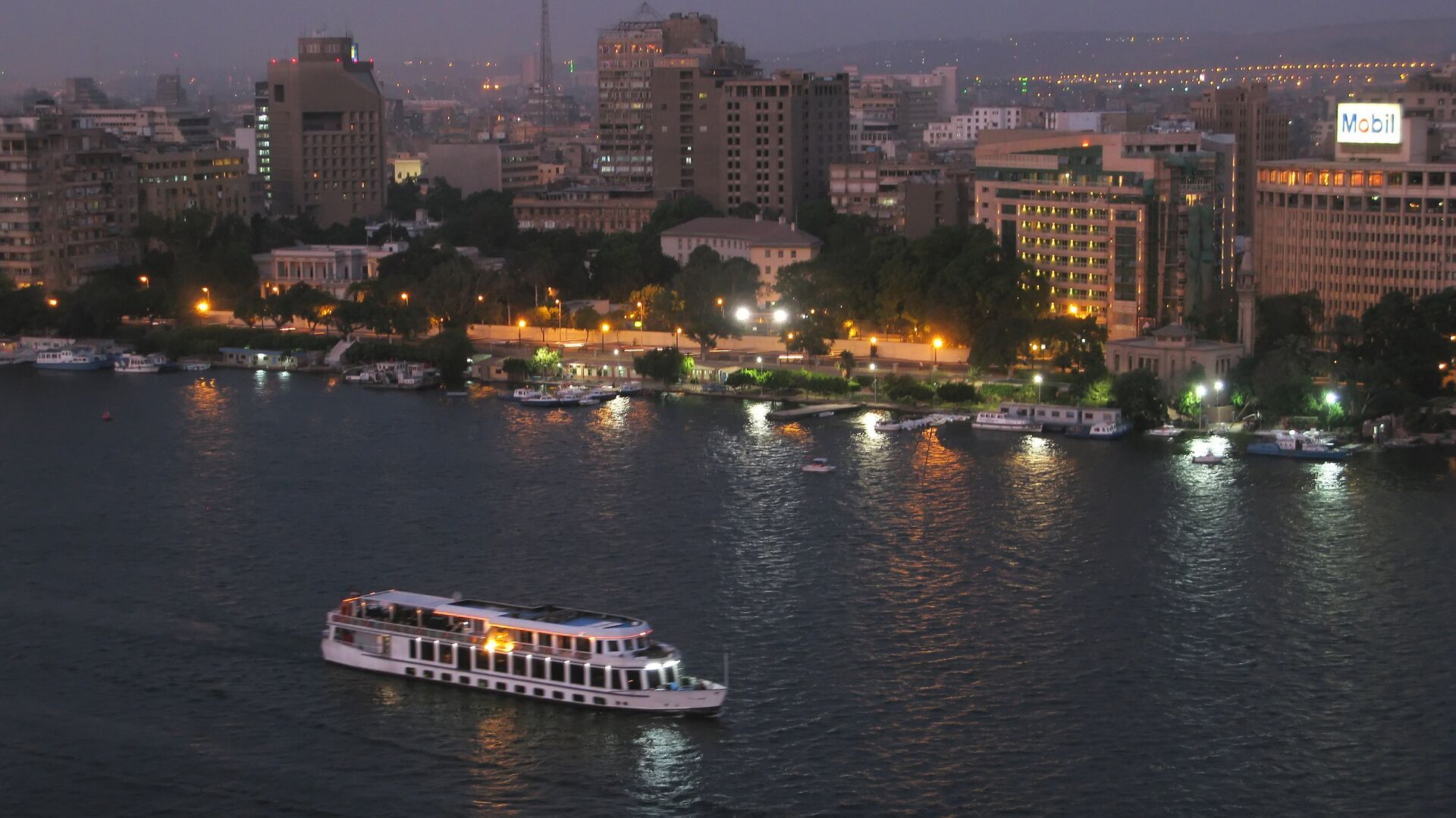Egypt Starts Rationing Electricity to Conserve Foreign Reserves as Grain Prices Rise

© Sputnik / Aleksey Babushkin
/ Subscribe
Egyptian President Abdel Fattah El-Sisi hosted a summit of Arab nations last week in El-Alamein to coordinate their efforts amid regional crises ranging from military conflicts to high grain prices. The region imports large amounts of wheat and corn annually, leaving it vulnerable to price fluctuations.
To conserve electricity, Egyptian cities have begun curbing electrical use, cutting street light power and enforcing store and public venue closure times to ensure no power is wasted.
According to a government statement, the rationing program “aims to achieve savings from natural gas used in operating power stations, with the aim of exporting it and benefiting from hard currency.”
The resolution adopted earlier this month affects government ministry buildings, provincial and municipal governments, commercial malls, major sports facilities, and other public venues. It requires them to reduce lighting in public squares, along streets, and on building facades, and not to turn air conditioning temperatures down below 25 degrees Celsius (77 Fahrenheit).
However, the Egyptian Energy Ministry cautioned that the rationing does not mean there is a shortage of electricity.
“The decision also includes reducing lighting in streets and public squares across the homeland, and reducing the use of power in LED billboards in the streets, squares and highways. The decision also applies to all places of worship, including mosques and churches,” Ayman Hamza, spokesman for the Ministry of Electricity and Renewable Energy, told Al-Monitor.
He added that “there will be government campaigns to closely follow up on the implementation process.”
The Nile nation has increased its gas exports in recent months, including signing a deal in June with the European Union. In return, Brussels pledged “immediate relief of €100 million” to support food security in Egypt and an additional €3 billion in "agriculture and nutrition, water and sanitation programmes over the next years here in the region,” according to European Commission President Ursula von der Leyen.
Egypt exported 9.45 million cubic meters of liquid natural gas between January and August 2022, a 44% increase over 2021 exports, according to Refinitiv data viewed by Reuters.
Falling Investment, Rising Food Costs
At the same time, an economic crisis has hit Egypt resulting from a combination of decreased income from tourism, a decline in investment, and a steep increase in inflation. The situation has forced Cairo to devalue the Egyptian pound and to seek financial relief from the International Monetary Fund (IMF). Characteristically, the Brussels-based lender has previously required Cairo to reduce the state’s role in the economy as a condition of dispersing the funds, leading to lengthy negotiations this year to secure more.
"The fact that talks with the IMF have dragged is probably a sign that some officials are reluctant to follow through on the Fund's demands and would prefer to rely on support from the oil-flush Gulf economies," London's Capital Economics told Agence France-Presse.
Timothy Kaldas, an analyst at the Tahrir Institute for Middle East Public Policy, told Agencia EFE that “Egypt is seeking that this announcement of gas exports to Europe, at a time when it is most needed, could help it to be seen as a ‘European partner’ and thus reduce pressure from the IMF.”
Receiving more foreign currency in exchange for its gas will help Cairo to afford to buy grain at higher prices that have been inflated by fears of shortages caused by the conflict in Ukraine, and claims by Kiev that it could not ship grain out due to the fighting. While safety guarantees have allowed Ukrainian shipments to resume, prices remain high and the Middle East and North Africa remain in a precarious state of food insecurity. Western sanctions have also limited the availability of Russian fertilizers, upon which much of Africa and Asia depend.
Earlier this month, El-Sisi hosted a summit of Arab states in El-Alamein aimed at improving security in the region, including food security but also military security, addressing the conflicts in Yemen, Libya, Syria, Gaza, and the West Bank, and resource security, with Ethiopia’s massive hydroelectric dam on the Blue Nile.
Egypt and Russia’s Rosatom began construction of a new nuclear power plant at El Dabaa along the Mediterranean coast in July - a project that Seoul-based Korea Hydro & Nuclear Power Co. joined last week. The plant will provide roughly 4.8 gigawatts of power via four power units with Russian VVER-1200 reactors belonging to the "3+" generation that meet the highest international efficiency and safety requirements.
In addition, the Saudi Electric Company recently secured a 14-year line of credit on $567.5 million to connect Saudi Arabia’s and Egypt’s electrical grids. The connection would allow Egypt to buy some 3,000 megawatts of power from its Red Sea neighbor.



